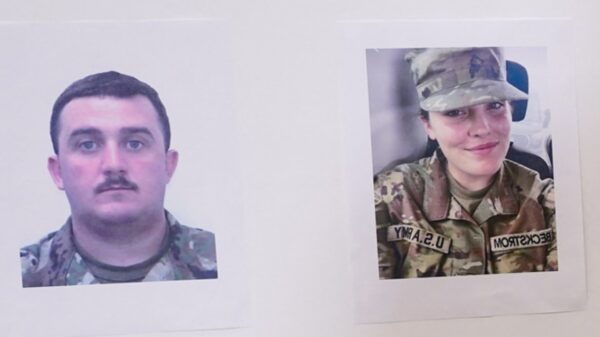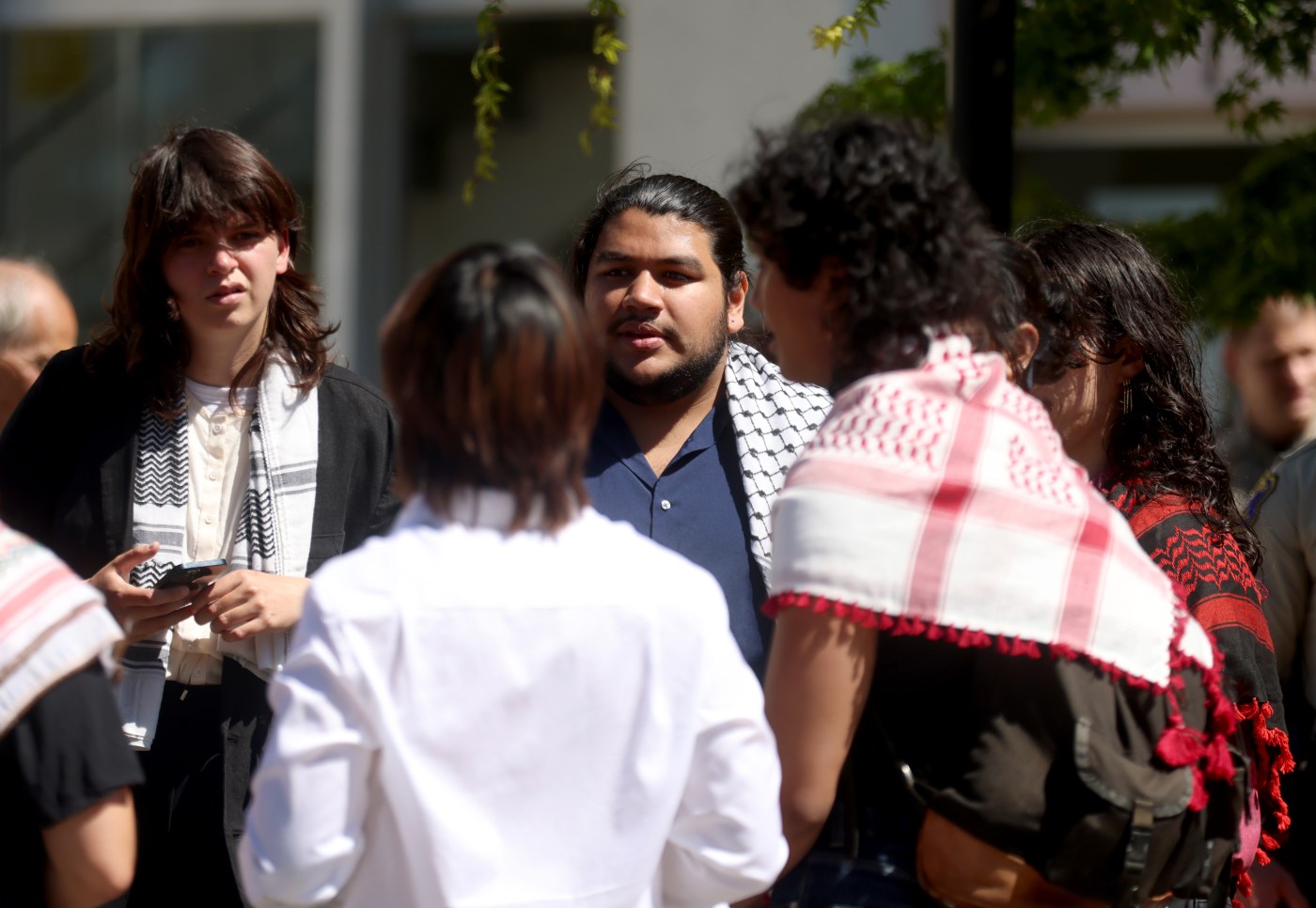BREAKING: Twelve pro-Palestinian activists from Stanford University have pleaded not guilty to felony vandalism charges during a protest that occurred in June 2024. The defendants appeared at the Santa Clara County Superior Court in Palo Alto on Wednesday, where they denied all accusations related to significant property damage estimated between $360,000 and $1 million.
The protest involved a takeover of university administrative offices, where some of Stanford’s historic sandstone buildings were defaced with graffiti. Following the event, a pro-Palestine student encampment was forcibly dismantled. The courtroom was filled with supporters, though the atmosphere was notably subdued compared to previous hearings. Sheriff’s deputies were present to secure the courthouse, reminding the public of a standing order against demonstrations on court property.
In a closed session, Judge Thomas Kuhnle reviewed a motion to reduce the charges from felonies to misdemeanors but ultimately denied the request without discussion. A preliminary hearing is scheduled for September 29, which will determine if there is sufficient evidence to proceed to trial, putting the activists at risk of felony convictions.
The case is part of a larger trend of increasing pro-Palestinian activism across U.S. campuses, with Stanford’s handling of the situation drawing criticism from both advocates for Palestine and groups alleging antisemitism. Stanford Students for Justice in Palestine has been vocal in its opposition, urging District Attorney Jeff Rosen to drop the felony charges.
“Students are on the right side of history in standing against genocide and injustice,” the group stated. “While DA Rosen risks placing himself on the wrong side of history by pursuing unjust charges that waste judicial resources.” Rosen, defending his position, stated, “Dissent is American. Vandalism is criminal. Speech is protected by the First Amendment. Vandalism is prosecuted under the penal code.”
The fallout from this case mirrors national scrutiny of universities’ responses to pro-Palestinian protests. Earlier this month, UC Berkeley provided the names of 160 students to federal authorities investigating antisemitism related to campus demonstrations. The escalating tensions reflect a broader cultural clash within academic institutions regarding political expression and activism.
In a related legal matter, Stanford’s student newspaper and two non-citizen students filed a federal lawsuit challenging provisions of the Immigration and Nationality Act they argue suppress political speech critical of Israel.
Activists and supporters are closely monitoring the developments, with many expressing their commitment to the cause. As legal battles unfold, the ramifications of these charges could have lasting effects on campus activism and free speech in the U.S.
Stay tuned for updates on this developing story as it unfolds in the coming days.



































































